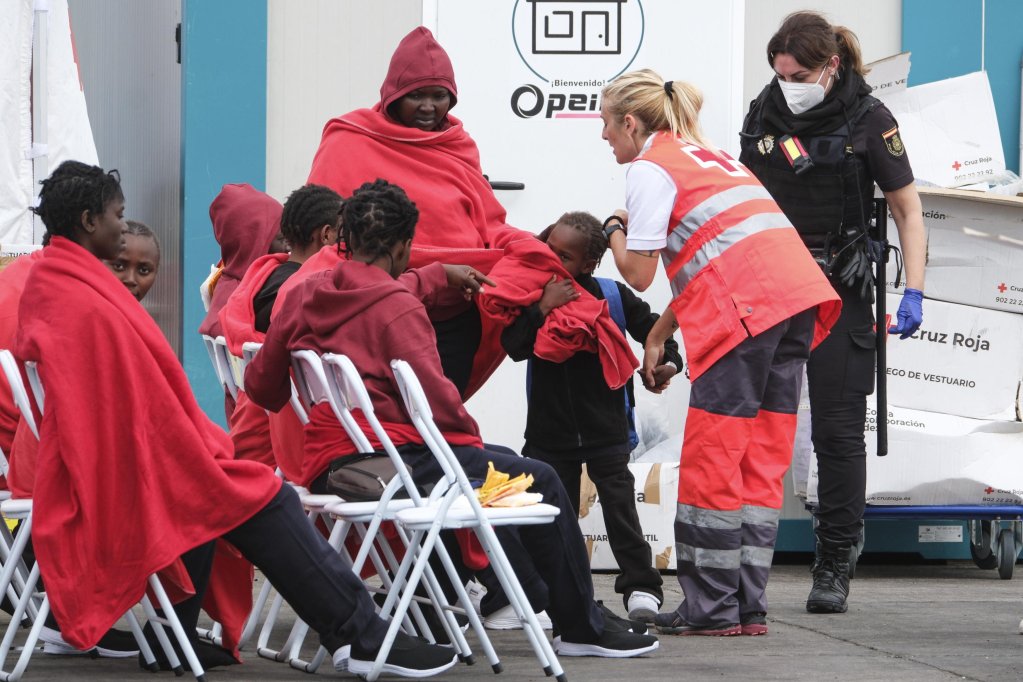Spanish Prime Minister Pedro Sanchez claimed that over the past decade, 94 percent of migrants in Spain arrived through regular and legal means. Spain has emerged as an outlier in the European Union for its more liberal migration policies.
Spanish Prime Minister Pedro Sánchez on Wednesday (September 10) claimed a 30 percent drop in irregular arrivals and insisted that over the past decade, only 6 percent of foreigners had entered Spain irregularly, according to the Spanish news agency EFE.
Speaking to Congress, Sanchez attributed the drop in irregular arrivals to his migration policies, which are a combination of promoting regular pathways to migration and combating crime.
Sanchez has received much criticism from the opposition for his liberal position on migration. However, the prime minister insists that legal migration policies are one way to address Spain's demographic and economic decline.
"If we do nothing, in 25 years, we will have a much smaller workforce, which would mean that the potential growth of our economy would fall from 2 percent to 0.1 percent. Tell me how we would finance the welfare state, pensions for our seniors, healthcare, or education," said Sánchez.
The prime minister also said that 94 percent of migrants who have arrived in Spain over the past decade have arrived through regular and legal channels.
Read AlsoImmigration key to Spain's economic boom
Venezuela: most number of asylum applications
In 2024, Spain ranked the second top receiving country for asylum applications, second only to Germany.
According to the latest report by the European Union Agency for Asylum (EUAA), which supports EU Member States in implementing asylum procedures, Spain received roughly 165,000 applications for asylum last year. This marked a 2.5 percent increase over the previous year and the highest annual total on record
While many reports focus on the number of irregular arrivals via boat from West Africa to the Canary Islands, the largest number of people seeking international protection in Spain comes from Venezuela and Colombia.

In 2024, Venezuelans clocked in as the largest group seeking international protection, accounting for more than 66,000 applications. Overall, Venezuelan nationals comprised nearly 40 percent of the total number of asylum applicants. Colombians were the second largest group with around 40,000 applications, followed by Mali, Peru, and Senegal.
Venezuelans and Colombians can enter Spain without a visa for short stays of up to 90 days. While it is unclear if Sanchez is attributing the low number of irregular arrivals to a particular group, according to the UN Refugee Agency (UNHCR), anyone in Spain, including people who entered on a visa or visa-free/tourist basis, can apply for international protection.
Meanwhile, official data from the Ministry of the Interior show that irregular arrivals by sea or land totaled 63,970 in 2024, up from 56,852 in 2023. So far this year, 24,958 arrivals have been recorded, according to UNHCR data, suggesting that arrival numbers are indeed falling.
Still, many applicants -- particularly Venezuelans -- were granted humanitarian residence permits instead of formal refugee recognition. These permits provide legal status and access to services, but fall short of full refugee protection.
Read AlsoSpain: Canary Islands request more help from Frontex
Outlier among more restrictive EU neighbors
As the UK and much of the EU move to tighten and restrict migration, Spain has set itself apart as an outlier with government policies that make it easier for foreigners to obtain the right to live and work in the country.
Last year, Spain announced that it would legalize about 300,000 undocumented migrants each year over the next three years by making it easier to acquire residency and work permits. The government also approved guaranteeing access to healthcare for migrants residing in Spain, including those who are undocumented.
Most recently, Spain’s new Immigration Regulation, which came into effect in May, introduced several new policies that included simplifying residence permits and "arraigo" (roots) permits without a job contract, more flexibility for family reunification, and longer periods for job-seeker visas.
